Harassment & Sexual Misconduct
If you, or someone you know, has experienced harassment and/or sexual misconduct, we can advise you on how to get help and support – while recognising that everyone copes differently with their own experience.
If you are a Falmouth staff member, you can find further information here.
If you’re not ready to talk about what has happened but you want someone to be aware, you can share your experience via our Support and Report tool. You can remain anonymous while making the University aware.
What is harassment and sexual misconduct?
Harassment is when someone’s unwanted conduct violates another’s dignity or creates an intimidating, hostile, degrading, humiliating or offensive environment because of, or connected to, protected characteristics. This might be a repeated experience or a single experience that impacts more than one person, in person or online.
Our Student Bullying and Harassment Policy is available to read here.
Sexual misconduct is when someone carries out unwanted sexual behaviour towards another person that makes them feel upset, scared, offended or humiliated. This can be a single or repeated experience of unwanted conduct, in person or online.
Our Student Sexual Misconduct Policy is available to read here.
What to do if you experience harassment and/or sexual misconduct
If you experience harassment or sexual misconduct, here are some steps you can take:
- Capture what happened: Write down details of the incident, including dates, times, locations and any witnesses. Keep any evidence, such as emails, texts or social media messages.
- Tell someone: Share your experience with a trusted friend, family member, peer or professional support service. They can offer support and help you decide on the next steps.
- Decide what is best for you: Seek advice, seek support and if you feel it’s right for you, report the incident to the University and/or to the police.
- Be informed: Familiarise yourself with your legal rights. For example, under the Equality Act 2010 you’re protected from sexual harassment in the workplace, on public transport and in educational institutions.
If you have witnessed harassment and/or sexual misconduct, report it – see Who do I tell?
If you’re studying at one of Falmouth University’s franchise collaborative partner institutions, you should use their reporting options.
If you’re a staff member who has been affected by any form of harassment including sexual harassment, please follow the University staff policy and procedure.
Options to consider
If you’ve experienced sexual assault or rape, there’s no right or wrong way to feel or be. What has happened is not your fault and you're not alone. Your safety and wellbeing are the most important things right now and you can access specialist support, if and whenever you feel ready.
If you'd like to speak to someone immediately
If you would like to speak to someone immediately, we encourage you to contact a Sexual Assault Referral Centre (SARC), which is a dedicated service offering free confidential healthcare and compassionate support to anyone who has been subjected to rape or sexual assault. These centres offer medical, practical and emotional support. They have specially trained NHS doctors, nurses and support workers to care for you.
The closest Sexual Assault Referral Centre (SARC) to the University is in Truro. You can refer yourself by calling 0300 303 4626 or by submitting a call back form and they will call you back at a time you specify.
To find out more about the services that SARCs offer, you can watch the NHS video, 'Turn to us, we are here'.
Drink spiking
If you think that you might have had your drink spiked, it’s best to report this to the police as soon as possible. Some drugs can leave the body within 12 hours, so it’s important you get tested as soon as possible. We know it can be scary to report being spiked, but the police are here to help you. They will listen to you and take you seriously.
Emergency contraception
It’s worth considering emergency contraception, which can prevent pregnancy, after unprotected sex (sex without contraception or when contraception might have failed). You need to use emergency contraception within three to five days of having unprotected sex. The sooner you use emergency contraception, the more effective it usually is.
Emergency contraception is available free from NHS sexual health clinics and GP surgeries.
HIV tests
It’s advisable to take an HIV test. You can obtain a test in person or order tests online, with free and paid-for options. Many tests will provide you with a result in just a few minutes. HIV prevention medication should be started within 36 hours.
Who do I tell?
Depending on how you feel, here are some support options available.
There’s a range of specialist support services, locally and nationally. Services we highlight at the University are the NHS Sexual Assault Referral Centre (SARC) and The Bridge. Both have advisors that are specially trained to help you to make the right decision.
We understand that it may be difficult to talk about what has happened but telling someone can really help. Our dedicated Student Support team is here to listen, to give you the support you need and to help you make an informed decision about what to do next. You’re not alone.
The Student Support team engage with and can support all Universities parties involved in any incident.
- On campus, visit the Student Helpdesk in the Library
- Email us: studenthelpdesk@falmouth.ac.uk
- Call us: 01326 370 460
- Complete our confidential form
Alongside our student support services, Falmouth students have 24/7 access to a confidential support helpline via our partner, Spectrum Life. This means help is always just a call, message or click away. Have your Student ID number handy if possible.
- Call 0800 0318227 (UK)
- WhatsApp: Send ‘Hi’ to 07418 360780 to start a conversation.
- Request a callback or use live chat: share your details and receive support at a time that suits you.
- If you’re in immediate danger, call 999.
- If you’re safe and have chosen to contact the police, contact the non-emergency line on 111.
The Student Support team can advise and support you in making a report to the police.
If you’re not ready to talk about what has happened but you want someone to be aware, you can share your experience via our Support and Report tool. You can remain anonymous while making the University aware.
Also read: What does the University do with the information I share?
If you do not wish to make a report to the police, or if you have already done so and the matter has been concluded, and you would like the University to take further action, you can make a formal complaint. The Student Support team can support you through the process. The Students’ Union can also provide impartial advice.
Frequently Asked Questions
It’s up to you how much you share and what steps you decide to take.
Our support team can:
- Listen
- Help you understand your options
- Help you to find the right ongoing support for your individual situation
- Help you to make any required adjustments at University
- Provide advice on seeking medical or legal support
- Support you while you contact the police or make a formal report to the University if you choose to
The University can put precautionary measures in place, which can include a requirement for a student not to contact another student, and/or a suspension, while a police or internal investigation is in progress.
Who you speak to and how you respond is your choice. Everyone reacts in their own way to their individual experience.
If you choose to contact the police, the team at the University can support you in doing this.
External support services can also help with this decision, including the NHS Sexual Assault Referral Centre (SARC) and The Bridge, a charity that is independent from the police and other services.
For more details about what the University does with the information you share, please see the next tab below.
The University treats your information with complete confidentiality. Information will only be shared with staff if it’s essential to allow us to respond to your report and make decisions in line with our policies and procedures. The University may also need to access sensitive information (for example, a file held by Student Services) during this process.
If you make an anonymous report, please be assured that the University does not collect any data that can identify you, other than any information you provide yourself. Anonymous reports help us understand what kind of incidents are taking place in our community. Anonymous reports will not be acted on, except in very exceptional circumstances where it’s necessary to ensure the safety and welfare of a student and/or the wider University community. In such cases, we understand that it may be possible to identify someone even if they have reported anonymously, from the context of information provided; however, we will make every effort to protect students in this situation.
Any report of an incident will be student-led. You choose who to speak with and when – you will not be asked to sign a non-disclosure agreement. Where the University is made aware of a serious allegation against a student or a member of staff or it has grounds to suspect that sexual misconduct has taken place or is taking place, it may have a duty to investigate a case, regardless of whether a student wishes to make a formal complaint. In some cases, the University may also have a duty to notify the police. As above, such circumstances would be to ensure the safety and welfare of a student and/or the wider University community.
All data provided to the University is treated in line with our data privacy regulations and complies with data protection legislation.
The University has a formal procedure to follow once a complaint is made. Those involved in the complaint are informed individually of the investigation, outcome, reasoning and of any follow-up actions.
When the University is made aware of an incident of sexual misconduct or harassment, a risk assessment is completed to ensure students are fully supported, and to consider, where appropriate, precautionary measures which may need to be put in place while the matter is considered further, including for a police or University investigation. A requirement for reporting and reported students not to contact each other is a standard measure. Further measures may include suspending a reported student from all or part of the University under our Suspension Policy. Precautionary measures may mirror any bail conditions issued as a result of any police processes.
Precautionary measures are neutral and temporary, taken in response to the serious concerns and balancing the interests of all parties involved, to allow space for further consideration and/or an investigation to take place.
Full details can be found in the Student Disciplinary Policy and Procedure. You can find this policies on our Regulations, Policies & Procedures page.
At Falmouth University, we believe that every student deserves protection from harassment and sexual misconduct. We’re committed to creating a safe and supportive environment where such behaviour is unequivocally not tolerated. Regardless of their mode of study, all individuals are supported.
We expect all members of our community to treat each other with dignity and respect, in alignment with our core values. We strive to foster a culture where inappropriate behaviour is actively challenged and not accepted.
Our commitment is to ensure a culture of mutual consent and empowerment, where everyone feels confident to speak out against misconduct and with no restrictions on lawful freedom of speech or academic freedom. We treat incidents of sexual misconduct and harassment with the utmost seriousness, sensitivity and fairness, ensuring comprehensive support for those affected.
Policy
We have a range of policies and procedures to ensure that harassment and sexual misconduct can be dealt with effectively and appropriately, and that all students can be supported.
Our policies state our definition of harassment and sexual misconduct. These are our official policies and are regularly reviewed by the University.
- Student Sexual Misconduct Policy
- Student Bullying and Harassment Policy
- Complaints Policy and Complaints Procedure
- Student Disciplinary Policy and Procedure
- Suspension Policy
- Safeguarding Policy
- Staff Misconduct Policy
Relationships
Close personal relationships between staff and enrolled students are not permitted, as stated in the staff "Relationships at Work Policy". Students can report harassment or sexual misconduct within staff-student relationships, regardless of the policy’s stance on such relationships, and will not be penalised for participating in such relationships. If you wish to report harassment or sexual misconduct within a staff-student relationship, you will be protected from retaliation.
Guidance is shared with all students on recognising and building healthy relationships.
Support is available for students 24/7, year-round. Any student can contact the helpline for advice if they are unsure of the situation in which they find themselves.
Training
From 1 August 2025, all new students are invited to mandatory training about sexual misconduct and harassment. Webinars or face-to-face training will be offered in Weeks 0–2 in each study block for all new starters (regardless of study mode). They are reminded of what is acceptable, what to look out for and how to respond to incidents. This is reinforced through student communications during their time at Falmouth.
Staff training is provided to ensure they are fully aware of the law and regulations as well as their role in responding to incidents of sexual misconduct or harassment. These messages are reinforced through each academic year via staff communications. Those involved in investigations or decision-making are given enhanced training, including on trauma-informed responses and relevant legal frameworks. Training is regularly updated.
Falmouth University maintains and promotes this webpage with staff and students in line with the Office for Students Condition E6 and its requirement for the provision of a comprehensive single source of information relating to sexual misconduct and harassment.
This statement was first prepared in July 2025. It was last reviewed in July 2025.
Staff and student engagement
Falmouth University co-chairs a Gender Safety and Sexual Misconduct Working Group with the University of Exeter, where both universities work together with Student Support services and the Students' Union to share work being done and coordinate joint initiatives. Falmouth University also works closely with external agencies such as the police and The Bridge, who attend regular wellbeing fairs and hold drop-ins on campus.
Respect & Belonging at Falmouth: Your Guide
At Falmouth University, we are committed to fostering a respectful, inclusive and safe community for all students. As part of this commitment, all new students are required to complete Respect & Belonging at Falmouth: Your Guide—a short, informative training session designed to help you understand your rights and responsibilities during your time at university.
This 30-minute webinar covers key topics including:
- Recognising and responding to harassment and sexual misconduct
- Staying safe online
- The role of the active bystander
- How to report an incident and access support services
The training is essential in helping us build a safer and more supportive campus environment.
For all on-campus undergraduate students, this will be delivered during induction week and can be found in your timetable. For online and postgraduate students – you will receive an email inviting you to attend one of 13 webinars running between weeks 0-1. For returning students – you will receive an email inviting you attend one of 3 webinars running in week 1. Further sessions will be added during the year.
If, for any reason—particularly due to past trauma—you feel this training is not suitable for you, you are not required to attend. Instead, you can choose to opt out of the training by completing this form.
The form also gives you the opportunity to request a conversation with a trained member of staff, should you wish to discuss alternative support options.
Together, we can ensure Falmouth remains a welcoming place where everyone feels they belong.
Discover all the support services available to our students

Emergency Support
Find out what to do if you or someone you know is experiencing a medical or mental health emergency....
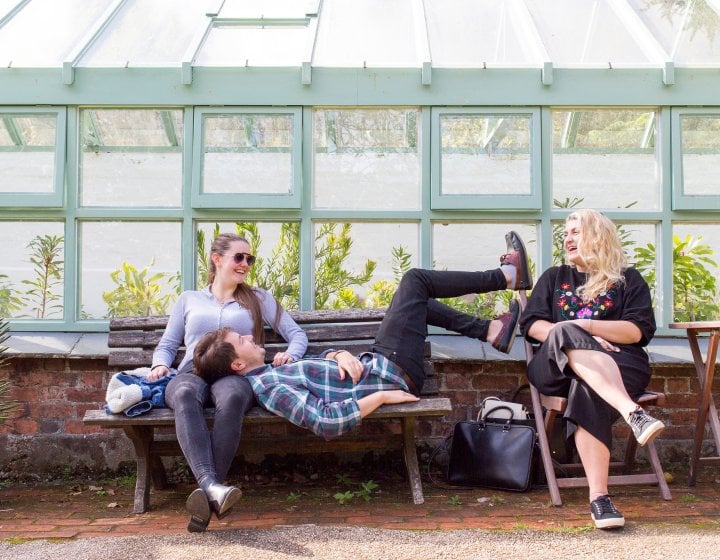
Mental Health & Wellbeing
Discover support and resources to help you manage your mental health while at Falmouth University. ...

Academic Support
Discover the academic support available to our students.

Support and report
Report incidents of harassment, bullying, intimidation or discrimination on our campuses or in the w...

Money Matters
Find key information to help you manage your finances with confidence.
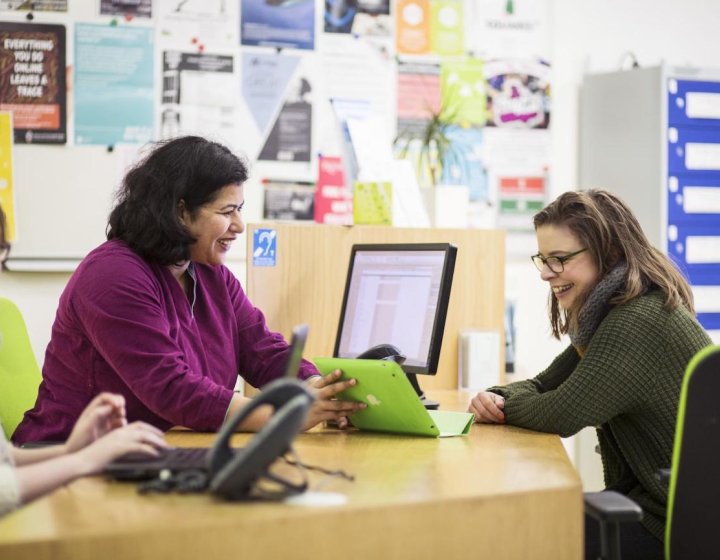
Disability Support
Removing barriers for students with Specific Learning Differences, disabilities and mental health ch...

New Students
Hit the ground running by following our step-by-step guide.
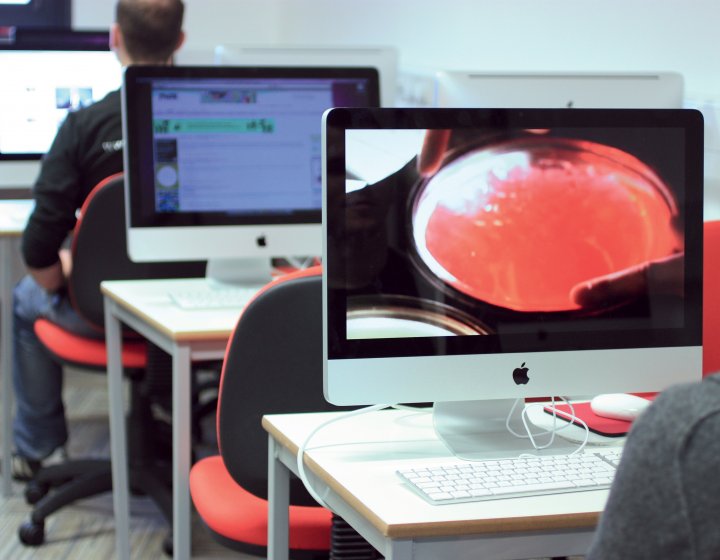
IT Services
Find out about our range of IT support services and how to contact us.
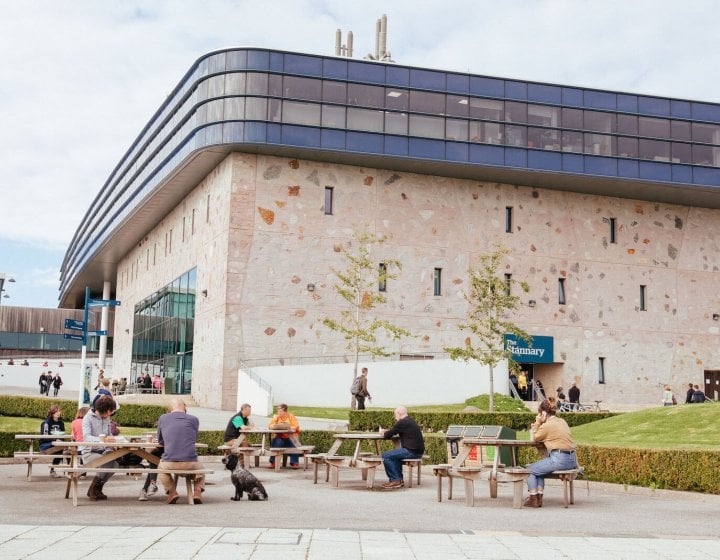
Support for Care Leavers
Going to university can be a big move, but we can offer you support.
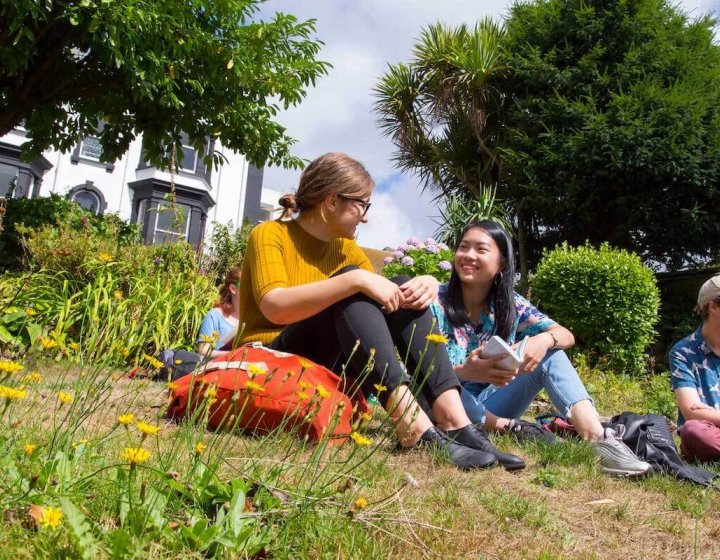
Multifaith Chaplaincy
Students and staff from every faith - and no faith - regularly drop in for pastoral and spiritual ca...

Nursery
Little Wonders Nursery provides childcare and education for children up to five, and after-school ca...
Policies and procedures
We have a range of policies and procedures to ensure that harassment and sexual misconduct can be dealt with effectively and appropriately, and that all students can be supported.
Our policies state our definition of harassment and sexual misconduct. These are our official policies and are regularly reviewed by the University.
